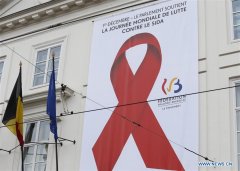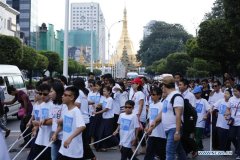Leading Australian doctors call for skin cancer photography covered by nation's universal health care
SYDNEY, Dec. 1 (Xinhua) -- Australia's leading skin cancer experts have called for melanoma photography to be covered by the nation's universal health care system, Medicare.
Melanoma surveillance photography, commonly known as "mole-mapping," is a vital tool for the early detection of skin cancer.
John Kelly, director of the Victorian Melanoma Service at Melbourne's Alfred Hospital, said Friday total body photography was "absolutely vital" and had the capacity to save lives and money by detecting melanomas earlier and reducing the need for surgery.
There is currently no Medicare rebate for the procedure with prices ranging from 190 to 340 U.S. dollars.
For high-risk people who need to have their photographs updated every year the price is often out of reach.
"We should be leading the way internationally in protecting our population from this life-threatening cancer," Kelly told the Australian Broadcasting Corporation (ABC).
The Australasian College of Dermatologists in November made an application for the introduction of a Medicare rebate for mole-mapping high-risk patients.
Robert Miller, a dermatologist in the Queensland city of Townsville which has a high incidence of melanoma, has spent four years leading the push for a Medicare rebate.
"I've done it because I feel very strongly that this technology will lead us to earlier diagnosis of melanoma and that in turn will lead to fewer people dying from this terrible disease," Miller said.
"We also believe it saves money because it costs something like 1,000 times the amount of money to treat someone who's had melanoma spread through their body than it costs to treat a very early melanoma simply by just cutting it out.
"The costs of melanoma that has metastasized are huge," he added.















